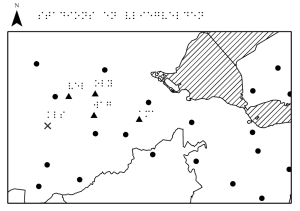Providing official geospatial data for disaster risk reduction assessment in Croatia
“Official cartography represents an indicator of statehood, while also being one of the top achievements of geodesy and cartography. The Republic of Croatia recognised this importance in realising the Croatian Topographic Map. Quality spatial data is also a basic precondition for adequate risk assessment, the development of prevention plans, and capacity building and risk response infrastructure.”
Damir Šantek, Director General, State Geodetic Administration of the Republic of Croatia
Following the establishment of an Official Topographic and Cartographic Information System (STOKIS), Croatia is now implementing multi-sensor aerial imaging for disaster risk reduction.
The EU-funded STOKIS project provides a basis for geoinformation systems of state authorities and public sector bodies. It was completed by entrusting the production of maps and spatial data to specialised private companies, whilst at the same time developing the technologies and digital ways of collecting topographic data. As a result, the focus has changed from standard representation to functionally linked spatial databases created from official geospatial information data.
The State Geodetic Administration, together with its partners – the Faculty of Geodesy, University of Zagreb, and the City of Zagreb – has signed the grant agreement for the ‘Multi-Sensor Aerial Imaging of the Republic of Croatia for Disaster Risk Reduction Assessment’ project.
Three main risks have been identified: floods, earthquakes, and open fires. The project will be completed by the end of 2023 and will deliver LiDAR scanning of the entire country which will also be used to produce a digital terrain model (DTM). The area of the City of Zagreb has been selected as a pilot area for developing a methodology for earthquake risk assessment due to the concentration of its population and economy and its location in an extremely seismically active area.
Benefits
Topographic and Cartographic Information System (STOKIS)
- Provides preconditions for initiating cartographic production of official topographic maps at 1:25,000 scale (TK25), 1:50,000 scale (TK50), 1:100,000 scale (TK100) and 1:250,000 scale (TK250).
- Reduces costs at the global and local level in physical planning, waste management, crisis management, tourism promotion, threat prevention, etc.
- Eliminates errors in reporting (i.e. to the European Commission) that can occur using informal spatial information.
Provides future users with modern and timely access to topographic and cartographic data of different resolutions through WMS and WFS services.
Multi-sensor aerial imaging for disaster risk reduction assessment project
- Delivering aerial photogrammetric imaging of the entire Republic of Croatia.
- Providing hyperspectral and thermal imaging of the corridors of the rivers Sava, Drava, Kupa and Danube.
- Developing a methodology for earthquake risk assessment in the Zagreb City pilot area that can be applied to other major cities.
- Producing a new DTM of higher accuracy, spatial resolution, and reliability than the existing model created using classical photogrammetric techniques.
- Providing high quality and accurate spatial data as the basis for preparing disaster risk analysis - primarly earthquakes and floods.
- Delivering data to all bodies and authorities in the disaster risk system via the WEB-GIS portal.

 The Netherlands Cadastre, Land Registry and Mapping Agency (Kadaster) is using Open Maps For Europe to develop a series of tactile maps for navigating by touch.
The Netherlands Cadastre, Land Registry and Mapping Agency (Kadaster) is using Open Maps For Europe to develop a series of tactile maps for navigating by touch.